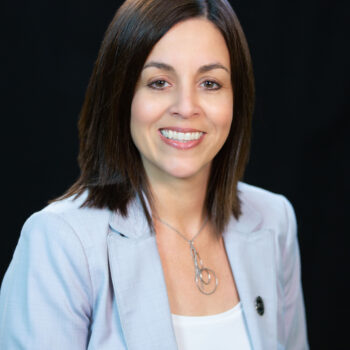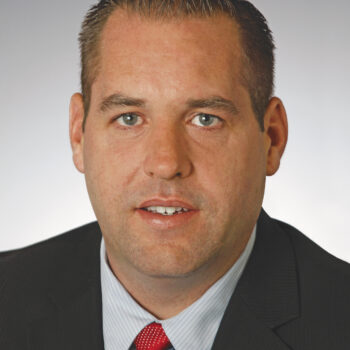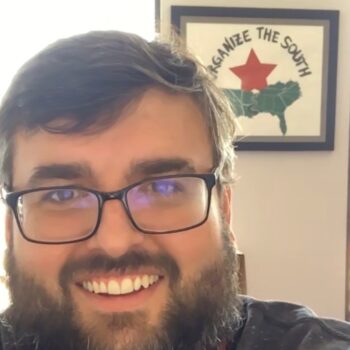In this fishbowl panel, labor journalist Sarah Jaffee talks with organizing directors at some of the country’s most ambitious and creative unions: Cindy Estrada from the United Auto Workers, Emily Stewart from the Service Employees International Union, Tom Smith from the Communications Worker of America, and Jim Williams from the Union of Painters and Allied Trades. The panel explores how unions are wrestling with broken labor law, declining unionization rates, and the challenges and opportunities of organizing in this moment.
What is the labor movement we need for the future we want?
Tom Smith: I’ve been trained that we begin with a power analysis. In the current moment, it’s challenging to imagine just how much power we must build to win a future worthy of the description of “one we want,” but this will certainly require a labor movement that is levels of magnitude greater than what we have today. A movement that’s willing to dream the impossible and will that vision into being. A movement that thinks creatively about how we build doorways into our organizations for tens of millions of workers regardless of “legal” constraints.
For us in CWA, that means thinking big, running ambitious organizing in our core sectors, and visionary organizing in completely non-unionized industries at a time of major economic realignment. We see the merger of traditional media and telecom with big tech, and finance capital in the middle of it all. For example, we’re in the middle of a huge wave of organizing in newsrooms at print and digital publications.
In tech and video games, we’ve launched the Campaign to Organize Digital Employees. We have won victories organizing the tech startup Glitch and saw video game developers make a first breakthrough, winning 78 percent pay increases after a 21-day strike of all LGBTQ, women, and non-binary game writers on the game Lovestruck.
To take on the power of finance capital, we continue our Committee for Better Banks campaign. Earlier this year, we successfully organized Beneficial State Bank. Prior to this win no private bank employees have successfully formed a union in over 40 years.
Jim Williams: When I think of the labor movement that we need right now, I think of the IUPAT’s “Free Hugo” campaign. In 2017, one of our members was arrested and detained by ICE. Hugo Mejia was held for months without trial for simply showing up to work. The IUPAT mobilized across the country and pressured politicians, legislatures, and the courts to free our union brother and to return him to his family and community while his asylum petition was heard. I think that campaign showed IUPAT, and the labor movement at large, at our best. The power workers have extends far beyond the job site to every level of society, and we used that power to show solidarity with one of our own. The IUPAT doesn’t just fight for better wages and benefits, we fight for a just society that all workers deserve to live in.”




